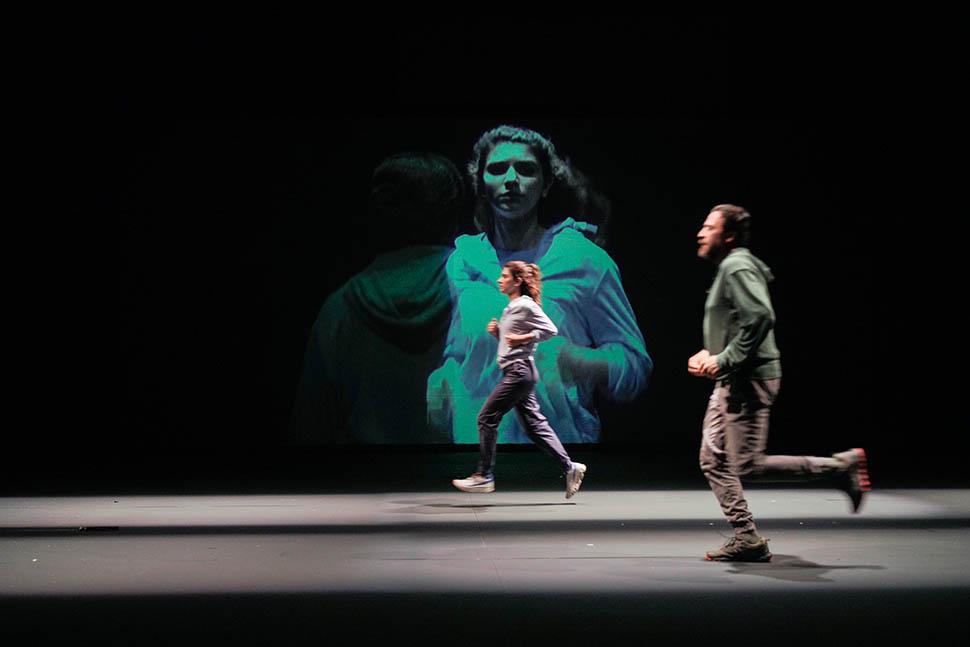| Year/Length: | 2023, 60’ |
|---|---|
| Text and direction: | Amir Reza Koohestani |
| Dramaturgy: | Samaneh Ahmadian |
| Assistant director: | Dariush Faezi |
| Lighting, scenography: | Éric Soyer |
| Video: | Yasi Moradi, Benjamin Krieg |
| Music: | Phillip Hohenwarter, Matthias Peyker |
| Costumes: | Negar Nobakht Foghani |
| Performers: | Ainaz Azarhoush, Mohammad Reza Hosseinzadeh |
| Production, administration, promotion: | Pierre Reis |
| Co-production: | Kunstenfestivaldesarts, Berliner Festspiele, Athens Epidaurus Festival, Festival d’Automne à Paris, Théâtre de la Bastille, La rose des vents – Scène nationale Lille Métropole – Villeneuve d’Ascq, La Vignette, scène conventionnée Université Paul-Valéry Montpellier, Théâtre populaire romand – Centre neuchâtelois des arts vivants, La Chaux-de-Fonds, Triennale Milano Teatro, Festival delle Colline Torinesi/Fondazione TPE, Noorderzon Festival of Performing Arts & Society |
| Creation residencies: | Théâtre populaire romand – Centre neuchâtelois des arts vivants, La Chaux-de-Fonds (Switzerland), KWP Kunstenwerkplaats (Brussels, Belgium) |
| With the support of: | Institut français, the Ministry of Culture – Drac Île-de-France |
| Notes: | Show in Persian language with surtitles. English translation and surtitles adaptation by Massoumeh Lahidji |
Amir Reza Koohestani / Mehr Theatre Group - Blind Runner

Description
Blind Runner interweaves the destinies of three people.
Once a week, a husband comes to visit his wife, a political prisoner. Spied on by cameras and bugged, their conversations become increasingly distant, leading to incomprehension and an inability to put into words the harshness of daily life.
However, at his wife’s insistence, the husband agrees to guide a young blind woman in a running race in Paris. They have to find a common rhythm and, over the course of their training sessions, get to know each other. Once the competition is over, another project emerges: to get to England by crossing the Channel Tunnel, covering 38 km in a few hours, to avoid being hit by the first train in the morning.
Between the confines of the prison and the sense of freedom afforded by the race, the plot gradually takes on a hypnotic rhythm, lulled by the musicality of Persian. Out of this interplay emerges a poetic vision of the struggle, of mutual aid, of the freedom towards which we throw ourselves.
True to his stripped-down approach to the stage, Amir Reza Koohestani uses video to multiply the possibilities of the narrative, letting the spectator’s gaze move freely from the performers’ bodies to their filmed faces.